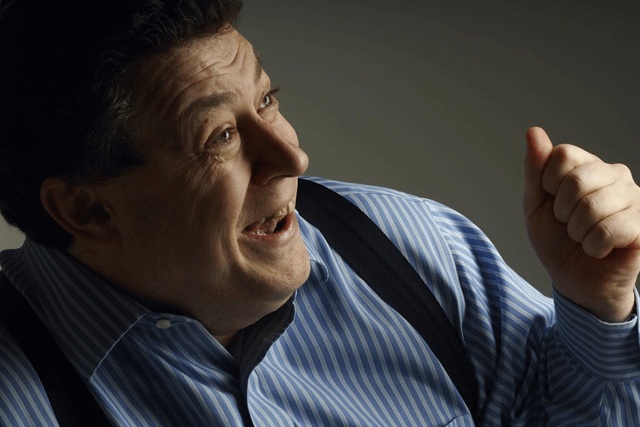
 I was kind of lucky. I was born in 1965 and, because my brother was an academic, I first used the internet in 1987.
I was kind of lucky. I was born in 1965 and, because my brother was an academic, I first used the internet in 1987.
I seem to remember visiting a usenet newsgroup (remember them?) where a man in Connecticut wanted to buy some obscure spare part for his London taxi and I was able to go to the Yellow Pages (remember them?) and find a place in East London that sold them. I passed on the phone number and he was duly grateful. This, I thought, was pretty cool, though I’m not sure whether we used the word "cool" then.
Later on, I was also lucky. Because I was working in direct marketing at what was then called Ogilvy & Mather Direct, it meant that, once the advent of the web made the internet both visually tolerable and instinctively useable, it was pretty easy to see how this could change marketing quite a bit.
Certainly, for a direct marketer, with clients mostly drawn from service industries, it demanded much less in the way of mental contortion to see the possibilities of internet marketing than if you were in a conventional ad agency, or working on an FMCG brand.
Teletext for the ’90s
I can remember when, if your VCR cocked up a recording, you had no chance of watching that programme ever again
And I was also lucky to be working at Ogilvy. It’s hard to remember it now, but digital evangelists were treated to a great deal of snarky scepticism for the first five years: "Teletext for the 1990s" was one damning phrase from an adman of the time.
But because David Ogilvy had always been a passionate advocate of alternative means of advertising, it was happily in our cultural DNA not to disparage something new but to be sensibly intrigued and open-minded about it – even before it was easy to see how it might make you any money. While it goes against the grain to high-five a holding company, it also has to be said that WPP were clear-minded advocates from the very beginning.
But, most of all, I am grateful for my good fortune in not being born 15 years later. You see I am not a digital native, for which I am ever grateful. As I still have some fading memory of what life was like before the digital age, I still get a little inner "wow" from the very fact that this stuff exists at all.
I can still remember modem noise. I can remember checking into luxury hotels and spending the first 10 minutes in my room trying to pull the bed away from the wall in a desperate attempt to access the RJ11 socket to plug a laptop into a phone line. I can still remember when people phoned you to check you had received their email.
I can remember when, if your VCR cocked up a recording, you had no chance of watching that programme ever again. I can remember when you had to travel 30 miles to buy interesting music. Hell, I can remember when the launch of a fourth TV channel was a really exciting household event.
Is it all banal to the digital natives?
But I worry about digital natives – I really do. Because to them all this stuff must just seem a bit banal. I still find it mildly exciting to pay my gas bill from a café in Paris. Is this just a chore to them?
And I worry that we have spawned a generation with no sense of perspective, who have never known any other world. My own children, when we rented a house in the country without wi-fi a few years ago, had no clue what was happening. "Dad, the internet’s broken."
I worry that we have spawned a generation with no sense of perspective, who have never known any other world
And this is the scary part. I can also remember what was better about life beforehand. I can remember when you actually stopped work when you left the office. I can remember when your in-tray wasn’t accessible to anyone in the world. I can remember those happy lulls in the working day when you spent an hour with nothing to do because you were waiting for something to arrive. And I can remember when people paid full attention to the people sharing a room with them.
I’m no Luddite. I wouldn’t have it any other way. But at least I can remember that there once was another way.



.jpg)
.jpeg)
